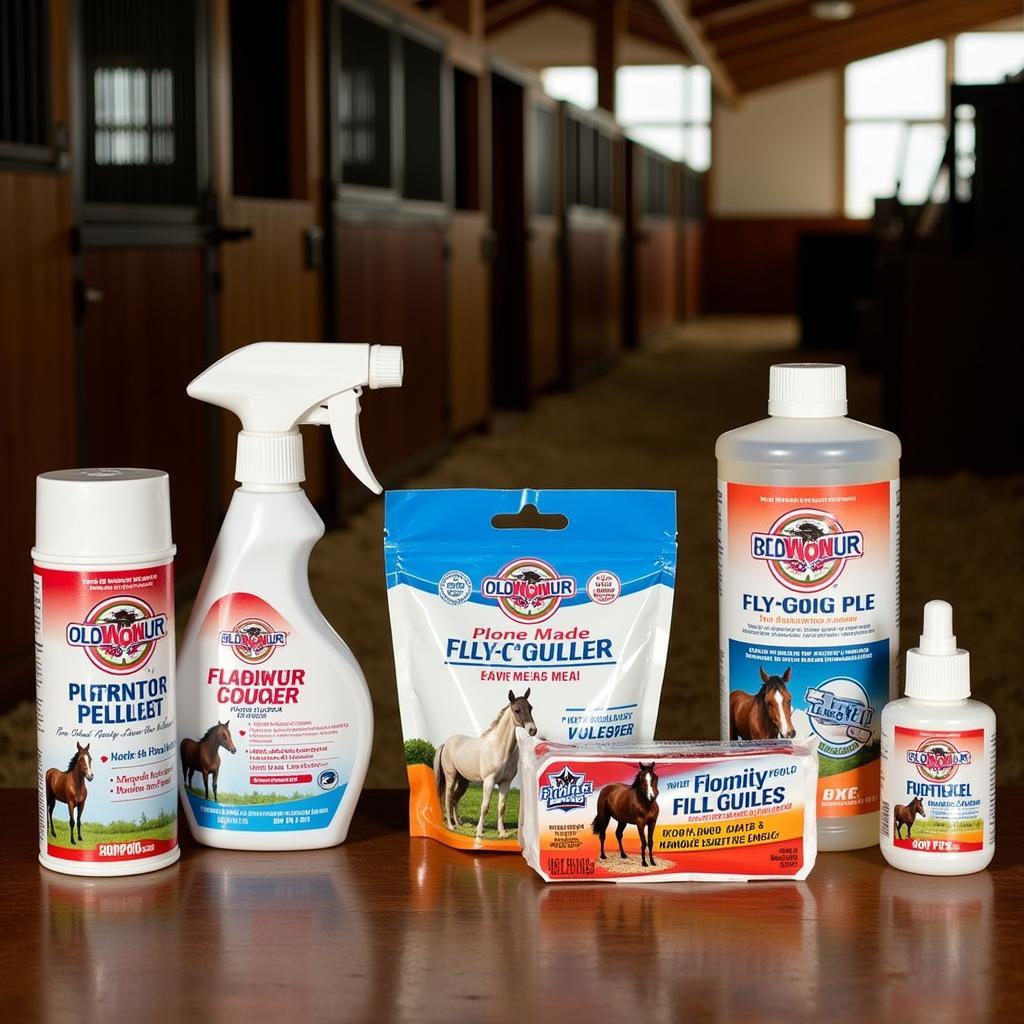Horse Fly Insect Repellent is crucial for maintaining your horse’s comfort and health during the warmer months. These biting insects can cause significant irritation and even transmit diseases. Choosing the right repellent and understanding how to use it effectively can make a big difference in protecting your horse from these pests.
Understanding the Need for Horse Fly Insect Repellent
Horse flies, also known as deer flies and gadflies, are a nuisance for both horses and humans. Their bites are painful and can lead to allergic reactions in some horses. These flies are attracted to movement, dark colors, and carbon dioxide, making horses prime targets. A good horse fly insect repellent creates a barrier against these pests, allowing your horse to graze and exercise without constant harassment.
Protecting your horses from these biting insects isn’t just about comfort; it’s also about their health. Constant biting can lead to stress, weight loss, and secondary infections from open wounds. Some species of horse flies can also transmit diseases. By using an effective horse fly insect repellent, you’re contributing to your horse’s overall well-being.
Choosing the Right Horse Fly Insect Repellent
The market offers a wide variety of horse fly insect repellents. Some common types include sprays, roll-ons, wipes, and even pour-on formulations. Each type has its advantages and disadvantages. Sprays offer broad coverage but can be difficult to apply evenly on windy days. Roll-ons are easy to use for targeted application, while wipes are convenient for quick touch-ups. Pour-on repellents typically provide longer-lasting protection.  Different Types of Horse Fly Repellent
Different Types of Horse Fly Repellent
When selecting a repellent, consider the ingredients. Some common active ingredients are DEET, permethrin, and pyrethrins. It’s essential to choose a product that is safe for horses and effective against the types of flies prevalent in your area. You might also consider horse ear muffs or ear hoods for horses for added protection.
Applying Horse Fly Insect Repellent Correctly
Proper application is key to maximizing the effectiveness of horse fly insect repellent. Always follow the manufacturer’s instructions carefully. Generally, it’s best to apply the repellent to clean, dry fur. Avoid applying it to areas with open wounds or irritated skin. For sprays, hold the can about 10-12 inches away from the horse and apply a light, even coating. For roll-ons and wipes, apply directly to the areas most prone to fly bites, such as the legs, belly, and face.
How Often Should I Apply Horse Fly Insect Repellent?
The frequency of application depends on the specific product and the level of fly activity. Some repellents offer protection for several hours, while others need to be reapplied more frequently. Monitor your horse for signs of fly irritation and reapply as needed. In areas with high fly populations, you might need to reapply every few hours.
Dr. Emily Carter, DVM, Equine Specialist, advises, “Remember to always test a small area of your horse’s skin for any adverse reactions before applying the repellent all over their body. This is especially important if you’re using a new product.”
Can I Use Homemade Horse Fly Insect Repellent?
Many horse owners explore natural remedies and homemade repellents. While some essential oils like eucalyptus oil horse fly spray can deter flies, it’s crucial to ensure they are safe for horses and used in appropriate dilutions. Always consult with a veterinarian before using any homemade repellent. You could also check out information on specific fly types, like the black horse fly florida, for targeted solutions.
Other Fly Control Measures
In addition to using horse fly insect repellent, consider implementing other fly control strategies around your stable. Keeping manure piles cleaned up, eliminating standing water, and using fly traps can significantly reduce the fly population in your horse’s environment. You may also want to consider visiting a rock creek horse camp for a change of scenery and potentially fewer flies.
Conclusion
Protecting your horse from horse flies is essential for their health and comfort. Choosing the right horse fly insect repellent and applying it correctly, combined with other fly control measures, can make a significant difference in keeping your equine companion happy and healthy during fly season.
FAQ
- What are the signs of a horse fly bite? Swelling, redness, and itching at the bite site.
- Can horse flies transmit diseases? Yes, some species can transmit diseases like equine infectious anemia.
- How can I prevent horse flies in my barn? Regular manure removal, eliminating standing water, and using fly traps.
- What are the natural remedies for horse flies? Some essential oils, like eucalyptus and citronella, can deter flies.
- How often should I clean my horse’s stable to prevent flies? Daily cleaning is ideal to minimize fly breeding grounds.
- Are there any horse fly repellents safe for foals? Consult with a veterinarian for recommendations for foals.
- Can I use human insect repellent on my horse? No, human insect repellents may contain ingredients that are harmful to horses.
Need further assistance with horse care and choosing the right fly repellent? Contact us! Phone: 0772127271, Email: [email protected]. Visit us at: QGM2+WX2, Vị Trung, Vị Thuỷ, Hậu Giang, Việt Nam. We have a 24/7 customer service team ready to help.